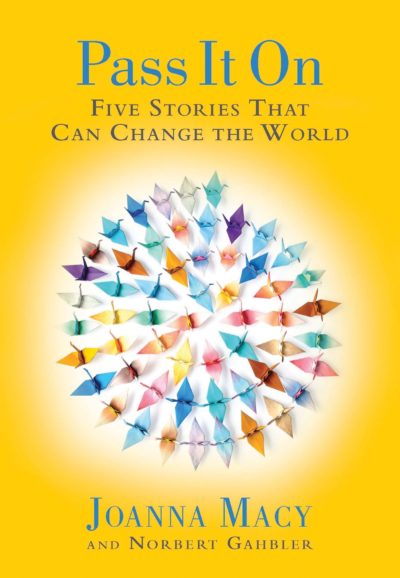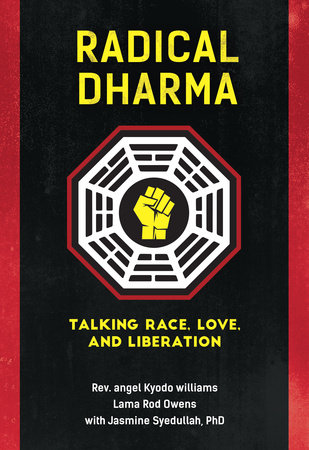Four years ago, I opposed reparations. Here's the story of how my thinking has evolved since then.
YOU MIGHT ALSO LIKE
CLEAR ALL
BY TOPIC
BY TEACHER
BY TYPE
FILTER

TOPIC
- BIPOC Well-Being (100)
- Black Well-Being (95)
- Racial Healing (86)
- Poverty/Economic Inequality (74)
- Whiteness (54)
- Community Healing (53)
- Global Challenges (50)
- Social Responsibility (44)
- Economic Justice (42)
- Spirituality and Politics (34)
- Racial Identity (33)
- Cross-Cultural Dynamics (25)
- Environmental Justice (24)
- Gender Discrimination (23)
- Incarceration (23)
- Trauma Healing (23)
- Immigration and Assimilation (22)
- Athlete Well-Being (21)
- Discrimination (21)
- Women’s Well-Being (21)
- Christianity (20)
- Gender Justice (20)
- Nonviolence (20)
- LGBTQIA Well-Being (18)
- Identity (17)
- Memoir (17)
- Mindfulness (17)
- Race and Gender (17)
- Feminism (16)
- Women’s Rights (16)
- Communication Skills (15)
- Unconscious Bias (15)
- AAPI Well-Being (14)
- Collective Trauma (14)
- Disabled Well-Being (14)
- Empowerment (14)
- Female Empowerment (14)
- Resilience (14)
- Emotional and Mental Health (13)
- Freedom (13)
- Intergenerational Trauma (13)
- Sustainability (13)
- Climate Change (12)
- Ecospirituality (12)
- Masculine/Feminine Dynamics (12)
- Speaking Your Truth (12)
- Environmental Exploitation (11)
- Fellowship and Community (11)
- Homophobia (11)
- Hope (11)
- Imagination and Creativity (11)
- Latinx Well-Being (11)
- Access to Education (10)
- Buddhism (10)
- Connection with Nature (10)
- Trauma (10)
- Belonging (9)
- Inner Life (9)
- Self-Care (9)
- Youth Activism (9)
- Creative Well-Being (8)
- Faith and Identity (8)
- Interdependence (8)
- Parenting (8)
- PTSD (8)
- Courage (7)
- LGBTQIA Sexuality (7)
- Moral Philosophy (7)
- Psychedelic-Assisted Therapy (7)
- Work Challenges (7)
- Compassion (6)
- Human Potential (6)
- Indigenous Well-Being (6)
- Leadership (6)
- Mental Health Challenges (6)
- Poetry (6)
- Self-Healing (6)
- Transformation (6)
- Unity (6)
- Veteran Well-Being (6)
- Anger (5)
- Building Culture (5)
- Generational Healing (5)
- Global Food Supply (5)
- Inspiration (5)
- Psychedelic Research (5)
- Self-Discovery (5)
- Social Presence (5)
- Suffering (5)
- Empathy (4)
- Faith (4)
- Family Dynamics (4)
- Gender Identity (4)
- God (4)
- Humanitarian Aid/Relief Work (4)
- Indigenous Rights (4)
- Inner Strengths (4)
- MDMA (4)
- Neuroscience (4)
- War (4)
- Yoga (4)
- Aging (3)
- Collaboration (3)
- Compassion Meditation (3)
- Connection (3)
- Digital Life (3)
- Fatherhood (3)
- Gender and Spirituality (3)
- Generosity (3)
- Higher Calling (3)
- Jewish Renewal (3)
- Lovingkindness Meditation (3)
- OCD (3)
- Physical Health (3)
- Presence (3)
- Psychology (3)
- Self-Development (3)
- Self-Reckoning (3)
- Self-Worth (3)
- Spiritual Life (3)
- Transgender Well-Being (3)
- Vulnerability (3)
- Young Adult Well-Being (3)
- Acceptance (2)
- Adaptability (2)
- AIDS (2)
- Asking for Help (2)
- Awareness (2)
- Body Image (2)
- Building Character (2)
- Burnout (2)
- Children’s Well-Being (2)
- Coming Out (2)
- Conflict Resolution (2)
- Cross-Cultural Parenting (2)
- Dharma (2)
- Emotional Labor (2)
- Finding Meaning (2)
- Friendship (2)
- Gender Challenges (2)
- Goal Setting (2)
- Grit (2)
- Guided Meditation (2)
- Inner Peace (2)
- Islam (2)
- Judaism (2)
- Karma (2)
- Life Challenges (2)
- Love (2)
- Managing Energy (2)
- Meditation (2)
- Mind-Body Connection (2)
- Mindfulness Meditation (2)
- Motivation (2)
- Oneness (2)
- Optimism (2)
- Othering (2)
- Philosophical Approaches (2)
- Relationship with Money (2)
- Sacred Feminine (2)
- Search for Purpose (2)
- Self-Expression (2)
- Self-Realization (2)
- Sexuality (2)
- Social Psychology (2)
- Somatic Practices (2)
- Spiritual Development (2)
- Spiritual Growth (2)
- Spiritual Healing (2)
- Spirituality and Health (2)
- Stress Management (2)
- Tibetan Buddhism (2)
- Values (2)
- Work Relationships (2)
- Abandonment (1)
- Addiction (1)
- Addiction Recovery (1)
- Adoption (1)
- Altered States (1)
- Anxiety (1)
- Archetypes (1)
- Authenticity (1)
- Betrayal (1)
- Bullying (1)
- Cancer (1)
- Child’s Emotional Growth (1)
- Child’s Trauma (1)
- Christian Mysticism (1)
- Chronic Anxiety (1)
- Comparing Belief Traditions (1)
- Compassion Fatigue (1)
- Confidence (1)
- Conscience (1)
- Conscious Evolution (1)
- Consciousness (1)
- Criticism and Rejection (1)
- Curiosity (1)
- Despair (1)
- Domestic Abuse (1)
- Drug Policy (1)
- Embodiment (1)
- Emotional Intelligence (EQ) (1)
- Enneagram (1)
- Fatigue (1)
- Fear (1)
- Female Friendship (1)
- Forest Bathing (1)
- Forgiveness (1)
- Goddess (1)
- Grief (1)
- Habits of Mind (1)
- Happiness (1)
- Healthy Eating (1)
- Identity Shifts (1)
- Imposter Syndrome (1)
- Indigenous Healing Approaches (1)
- Integrity (1)
- Intention (1)
- Intuition (1)
- Joy (1)
- Kids and Sports (1)
- Kindness (1)
- Leaving a Religion (1)
- Letting Go (1)
- LGBTQIA Parents (1)
- Life-Altering Injury (1)
- Living with Illness (1)
- Loneliness (1)
- Lovingkindness (1)
- Male Friendship (1)
- Men’s Well-Being (1)
- Mentoring (1)
- Mindfulness Practices (1)
- Narcissism (1)
- Native American Beliefs (1)
- Neopaganism (1)
- Neoshamanism (1)
- Patience (1)
- Peak Performance (1)
- Problem Solving (1)
- Productivity (1)
- Rebirth (1)
- Religious Experience (1)
- Science and Spirituality (1)
- Self-Acceptance (1)
- Self-Actualization (1)
- Self-Esteem (1)
- Self-Reflection Practices (1)
- Sex (1)
- Sexual Assault or Abuse (1)
- Sexual Health (1)
- Shadow (1)
- Shame (1)
- Soul Mission (1)
- Spiritual Awakening (1)
- Spiritual Practices (1)
- Spiritual Quest (1)
- Storytelling (1)
- Suicide (1)
- Traumatic Grief (1)
- Trust (1)
- Weight Concerns (1)
- Well-Being (1)
- Wholeness (1)
- Witch (1)
- Witchcraft (1)
- Yoga Therapy (1)
- Zen Buddhism (1)
FILTER

TEACHER
- Monnica Williams (10)
- Rhonda Magee (10)
- William Barber (10)
- Gloria Steinem (8)
- Ibram X. Kendi (7)
- James H. Cone (7)
- Nelson Mandela (7)
- Nikki Giovanni (7)
- Rebecca Solnit (7)
- Audre Lorde (6)
- Cornel West (6)
- Jacqui Lewis (6)
- Joanna Macy (6)
- Riane Eisler (6)
- Alice Walker (5)
- bell hooks (5)
- Liz Theoharis (5)
- angel Kyodo williams (4)
- Jared Diamond (4)
- Nathalie Edmond (4)
- Resmaa Menakem (4)
- The Dalai Lama (4)
- Allison Briscoe-Smith (3)
- Carolyn Baker (3)
- Jon Kabat-Zinn (3)
- Lama Rod Owens (3)
- Matthew Fox (3)
- Oprah Winfrey (3)
- Sharon Brous (3)
- Sonia Sanchez (3)
- Toni Morrison (3)
- Traci Blackmon (3)
- Valarie Kaur (3)
- Vandana Shiva (3)
- Wendell Berry (3)
- Zainab Salbi (3)
- adrienne maree brown (2)
- Andrew Harvey (2)
- Daisaku Ikeda (2)
- Desmond Tutu (2)
- Elizabeth Cronise McLaughlin (2)
- Howard Thurman (2)
- Jacqueline Novogratz (2)
- Jean Shinoda Bolen (2)
- Jenée Johnson (2)
- john a. powell (2)
- Larry Ward (2)
- Michelle Cassandra Johnson (2)
- Molly Young Brown (2)
- Parker J. Palmer (2)
- Ruth King (2)
- Satish Kumar (2)
- Serene Jones (2)
- Spring Washam (2)
- Stephanie Y. Evans (2)
- Aama Bombo (1)
- Adam Phillips (1)
- Adrienne Rich (1)
- Agnes Baker-Pilgrim (1)
- Amanda Gorman (1)
- Amishi Jha (1)
- Anodea Judith (1)
- Beatrice Long Visitor Holy Dance (1)
- Buckminster Fuller (1)
- Claudio Naranjo (1)
- Danya Ruttenberg (1)
- Deepak Chopra (1)
- Diane di Prima (1)
- Duane Elgin (1)
- Glennon Doyle (1)
- Graham Hancock (1)
- Grandmother Flordemayo (1)
- Gwendolyn Brooks (1)
- Jack Kornfield (1)
- Jamie Wheal (1)
- Jenny Kassan (1)
- Joan Chittister (1)
- JoAnna Hardy (1)
- Julieta Casimiro (1)
- Kareem Abdul-Jabbar (1)
- Krista Tippett (1)
- LaRayia Gaston (1)
- Lauren Singer (1)
- Lucille Clifton (1)
- Margaret Behan (1)
- Maria Alice Campos Freire (1)
- Marianne Williamson (1)
- Megan Rapinoe (1)
- Michael Pollan (1)
- Michio Kaku (1)
- Mona Polacca (1)
- Muhammad Ali (1)
- Nina Simons (1)
- Oshoke Pamela Abalu (1)
- Otto Scharmer (1)
- Pope Francis (1)
- Prince EA (1)
- Rachel Naomi Remen (1)
- Rachel Ricketts (1)
- Rha Goddess (1)
- Rich Fernandez (1)
- Rita Long Visitor Holy Dance (1)
- Rita Pitka Blumenstein (1)
- Robert Thurman (1)
- Roxane Gay (1)
- Russell Brand (1)
- Sandra Ingerman (1)
- Seane Corn (1)
- Sharon Kleinbaum (1)
- Simone Weil (1)
- Starhawk (1)
- Tara Brach (1)
- Thich Nhat Hanh (1)
- Thomas Hübl (1)
- Tsering Dolma Gyaltong (1)
- Willis Harman (1)
- Woman Stands Shining (1)










